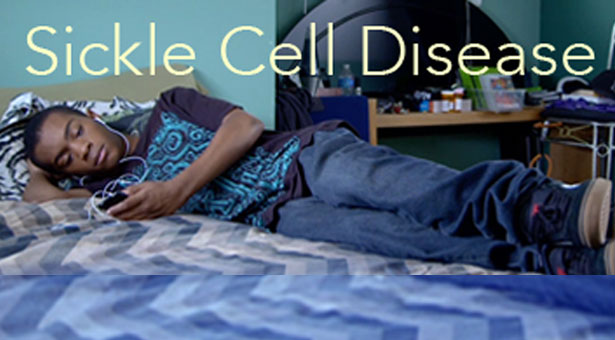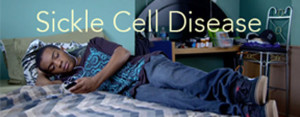
 Learn how to prevent a painful sickle cell disease crisis during the summer
Learn how to prevent a painful sickle cell disease crisis during the summer
By Tosin Ola, BSN, RN
For most of us, the summer represents fun: playing outdoors, cooling off in a pool and enjoying a family vacation.
But for the many children, teens and adults living with sickle cell disease, these activities can trigger an extremely painful “crisis” episode – the most common manifestation of this genetic, chronic, and deadly disease.
Crisis has been described as a severely debilitating pain: sharp, intense, stabbing, throbbing, and more uncomfortable than post-surgical pain or even childbirth. Worse, crisis can occur at any moment without warning.
Enjoying a summer day at the pool can end up in the hospital if you’re not aware of the crisis triggers. Crisis is the leading cause of hospital admissions among people with sickle cell disease. And, this recurring condition hospitalizes sufferers for four-five days on average, but may last a week or longer. Each year, there are about 100,000 crisis hospitalizations.
Crisis occurs when the level of “sickled” blood cells rises, blocks the small blood vessels, and reduces oxygen delivery and blood flow to vital organs and bone marrow. Over time, this can cause organ failure and early death. In fact, the typical life expectancy for people living with sickle cell disease is only 45 years.
On behalf of Mast Therapeutics, and as a practicing registered nurse, patient advocate and person living with sickle cell disease, I’d like to share important tips to prevent a summertime crisis so that patients, their parents and caregivers may be aware.
Top five summertime crisis triggers, and helpful tips, include:
- People with sickle cell disease are at high risk for dehydration since they require an increased amount of liquids. Drink lots of room temperature water, and carry a bottle of water with you.
- Changes in temperature can lead to crisis since people living with sickle cell disease have an increased sensitivity to cold (extremely cold air conditioning) and heat (extremely hot weather outside). Avoid becoming over-heated in the sun by resting in the shade (under an umbrella or tree) and staying hydrated. Don’t forget to wear a hat. Keep light clothing layers readily available for any changes in temperature – such as a cool, unexpected breeze when the sun sets. Before walking into an air-conditioned home, make sure to put on a sweater to allow your body to adjust to the temperature change.
- Swimming is a quintessential part of summer. But, it’s best to avoid cold pool water. Wear a wetsuit, which will manage your body’s temperature. Or, ensure the pool water is warm in temperature. When getting out, wrap yourself in a warm towel.
- When traveling by plane, the high altitude may cause a crisis. Take your pain medication onboard, walk the aisle and do leg exercises (hourly) to prevent leg blood clots. If needed, use a cane and ask for wheelchair assistance. If you have breathing problems, you may require a portable oxygen machine. Also, plan some rest days after landing at your destination to just relax.
- While outdoor sports (football, volleyball, soccer, etc.) are loads of fun, these can lead to loads of trouble and a painful crisis if you don’t take precaution. Take frequent breaks, relax, rest and stay hydrated.
It’s important that you talk to your doctor, openly and regularly, about sickle cell disease, and learn how to best manage your condition and reduce the complications.
To connect with more than 18,000 people affected by sickle cell disease across the globe, and share your voice, join the largest online, non-profit community support group “Sickle Cell Warriors” at https://www.facebook.com/SickleCellWarriors.





Be the first to comment